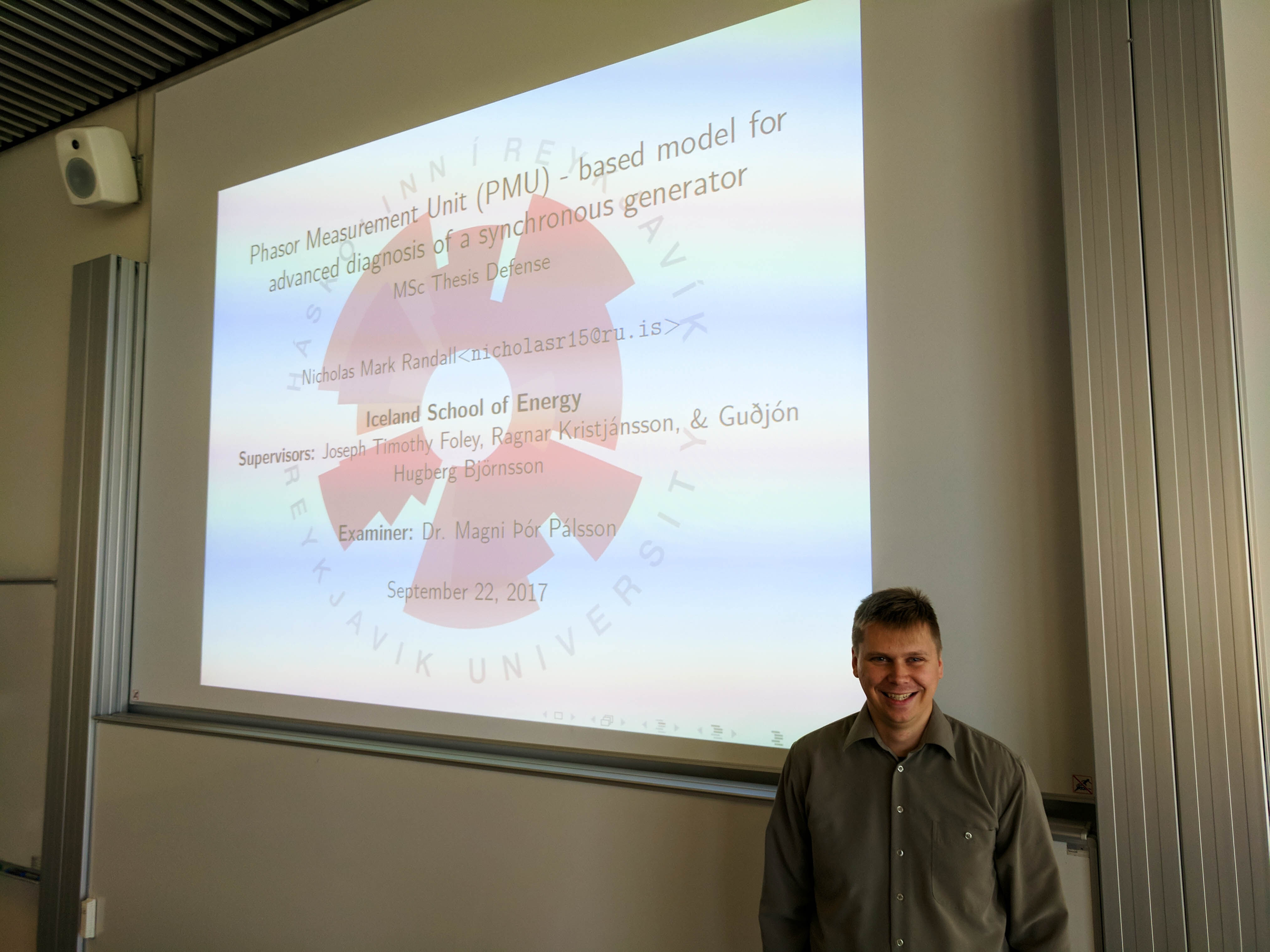MSc Thesis: Phasor Measurement Unit (PMU) Based Model for Advanced Diagnosis of Synchronous Generator
Nicholas Mark Randall successfully defends his master's thesis
REYKJAVIK, September 22 – Master's candidate of Sustainable Energy Engineering, Nicholas Mark Randall, has just successfully delivered his master's thesis project, investigating Phasor Measurement Unit (PMU) data to create an event detection algorithm where generator behavior under relevant operating conditions is simulated. Throughout his work, Nicholas was supervised by Dr. Joseph Timothy and Dr. Ragnar Kristjánsson here at Reykjavik University, along with System Operator Guðjón Hugberg Björnsson from Landsnet.
 According to Nicholas, unusual generator events are sometimes seen in the Phasor Measurement Unit (PMU) data in the Icelandic power system, likely due to the system's small size. The use of PMU data with event detection algorithms, along with modeling, could be a method of capturing these events for analysis.
According to Nicholas, unusual generator events are sometimes seen in the Phasor Measurement Unit (PMU) data in the Icelandic power system, likely due to the system's small size. The use of PMU data with event detection algorithms, along with modeling, could be a method of capturing these events for analysis.
As such, the goals of Nicholas' thesis are to develop an event detection algorithm and methods of modeling the power system, using events found in the PMU data, to simulate generator behavior under the relevant operating conditions. Nicholas used two approaches: Event Detection Analysis and Parameter Estimation.
In Nicholas' work, Event Detection Analysis was employed with three methods. Method One used a digital filter, and fast Fourier transforms for analysis. Method Two used a matched filter algorithm. Method Three worked on the principals of machine learning, using the Gaussian Process Classifier (GPC) for identification of events in the PMU data.
In the second approach, Parameter Estimation, Nicholas used the method of time series analysis for finding the necessary parameters of the generators and modeling them. These parameters were: the inertia of the generators, the speed regulation constant, and the time constant of the turbine-governor system. Axiomatic Design was used for developing the design protocol for Event Detection Analysis software.
Summarizing his findings, Nicholas shares that the results from the Event Detection Analysis showed that out of the three methods tried the machine learning method gave the best results for the Event Detection approach. Results from Parameter Estimation revealed that this method works but requires a lot of fine-tuning for better parameter estimates. Further, the results from the two approaches showed that when tested they would meet the requirements of processing PMU data in real time. Therefore, these approaches have relevance for the Icelandic power system and will need further research.
Congratulations Nicholas on an excellent thesis!
